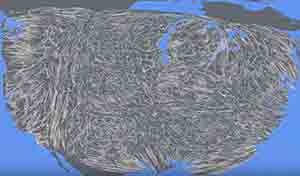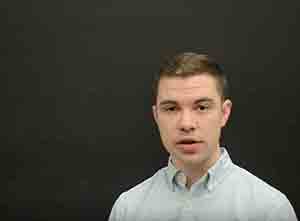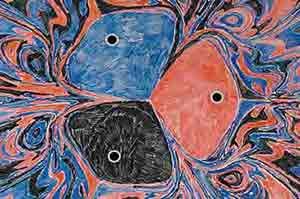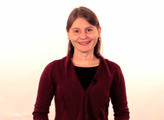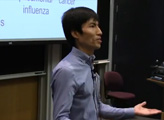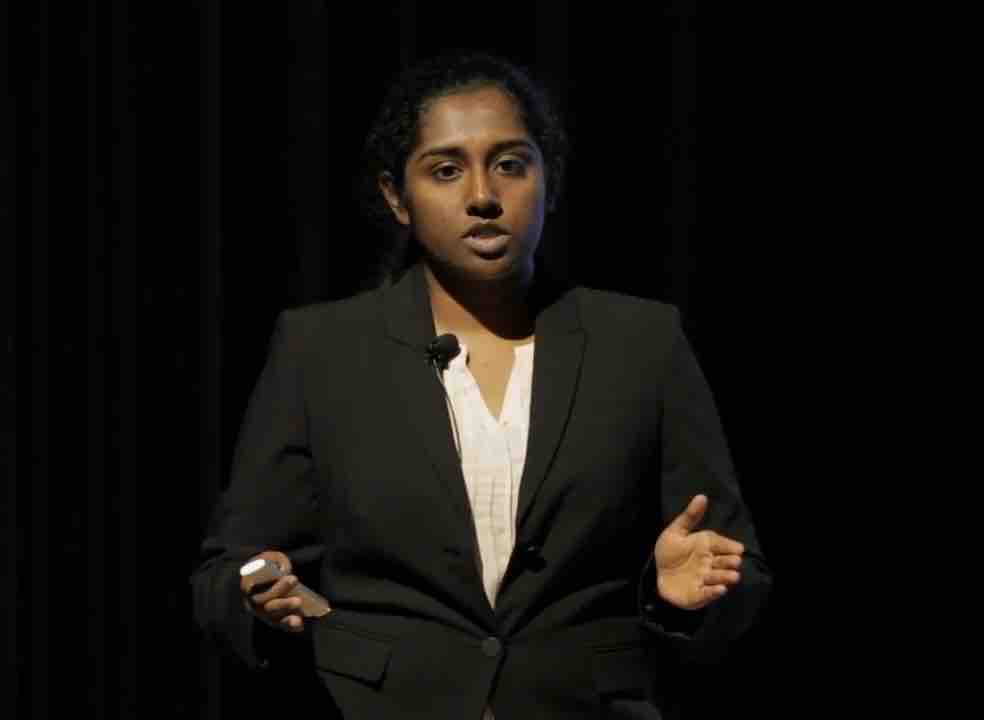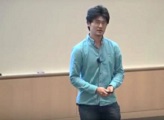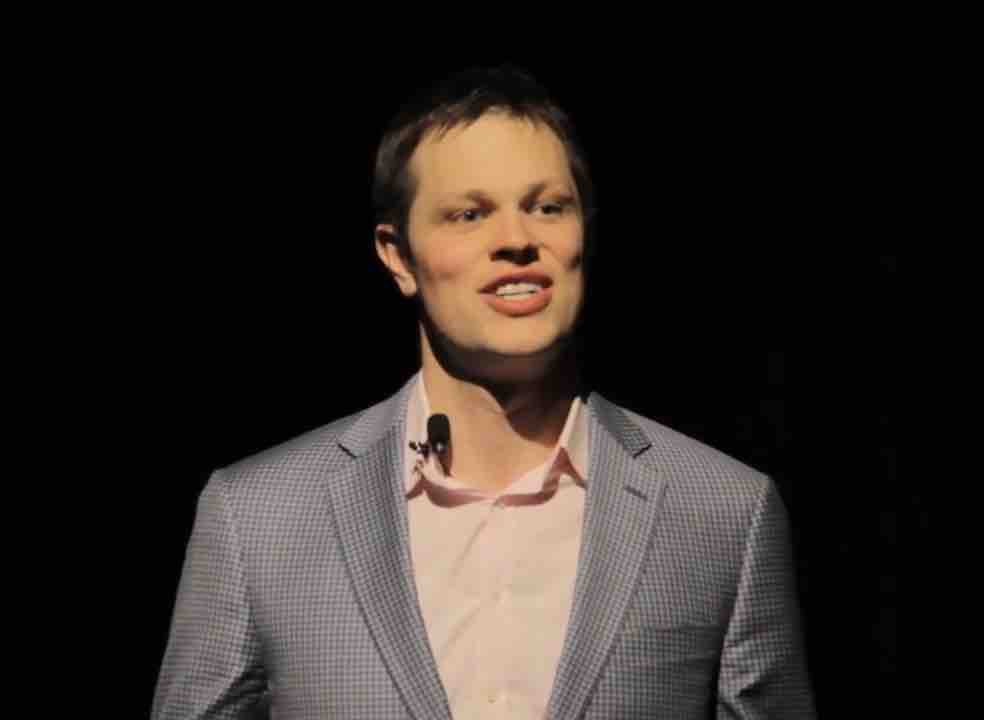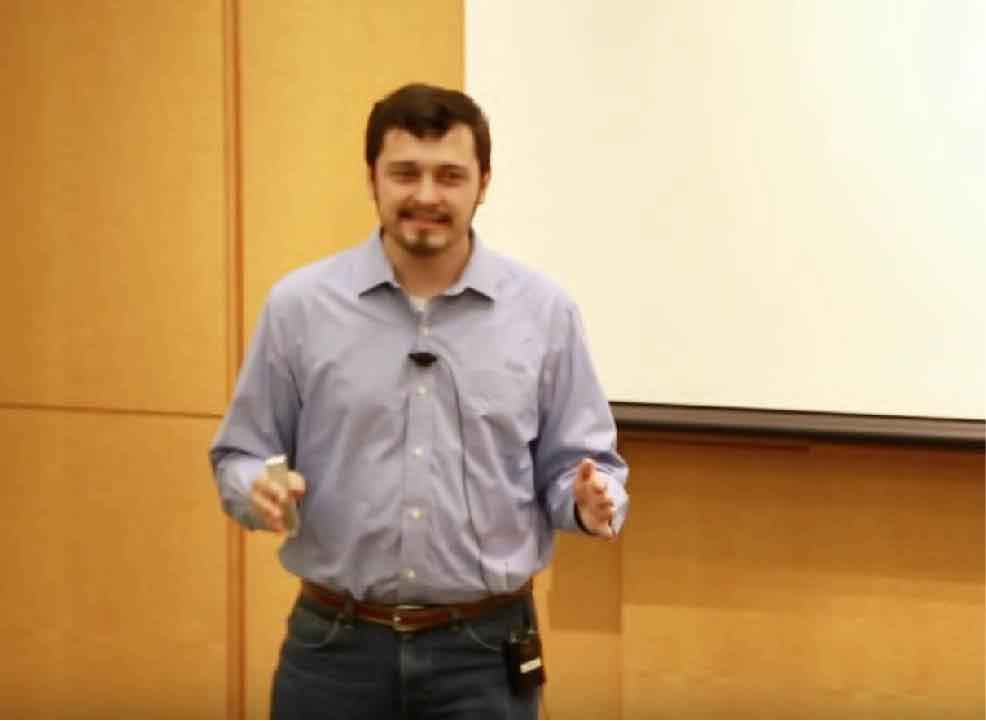Transfer Learning for New Disease Treatment
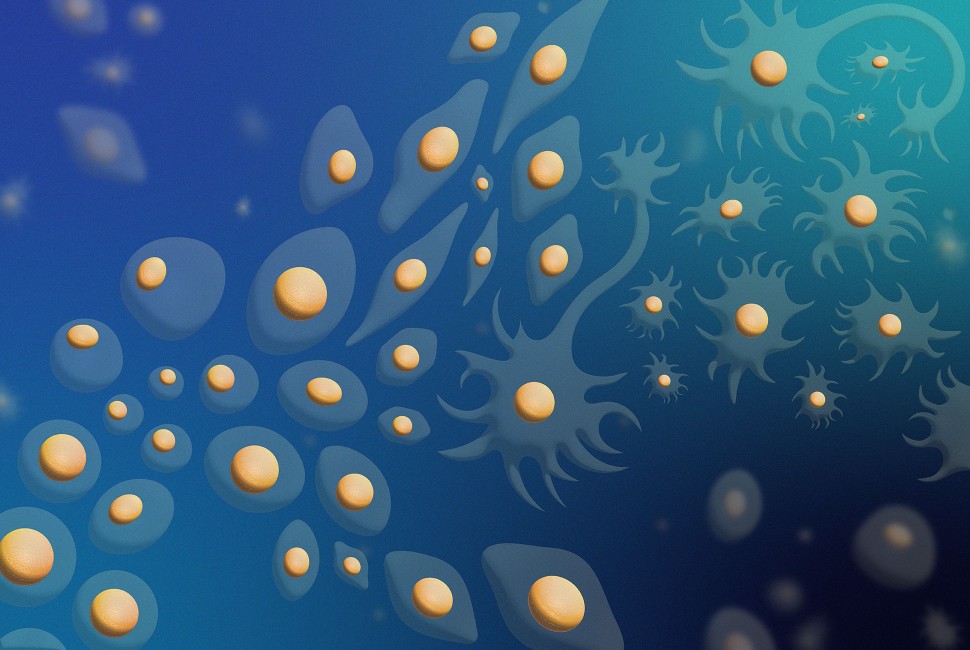 Understanding how to guide cells from diseased to healthy states is a longstanding challenge in biomedicine. In a recent PNAS publication, we developed an approach that uses transfer learning to predict how genes can be perturbed to reprogram cells and promote prespecified healthy behavior. We estimated the perturbation responses from large-scale gene expression datasets and found additive response combinations that achieve the desired behavior, allowing knowledge from one setting to inform another. The approach has broad potential for therapeutic development, offering a scalable data-driven pathway to design interventions for a variety of diseases. You can read more about this work here.
Understanding how to guide cells from diseased to healthy states is a longstanding challenge in biomedicine. In a recent PNAS publication, we developed an approach that uses transfer learning to predict how genes can be perturbed to reprogram cells and promote prespecified healthy behavior. We estimated the perturbation responses from large-scale gene expression datasets and found additive response combinations that achieve the desired behavior, allowing knowledge from one setting to inform another. The approach has broad potential for therapeutic development, offering a scalable data-driven pathway to design interventions for a variety of diseases. You can read more about this work here.
Hybrid Quantum Network for Global Connectivity
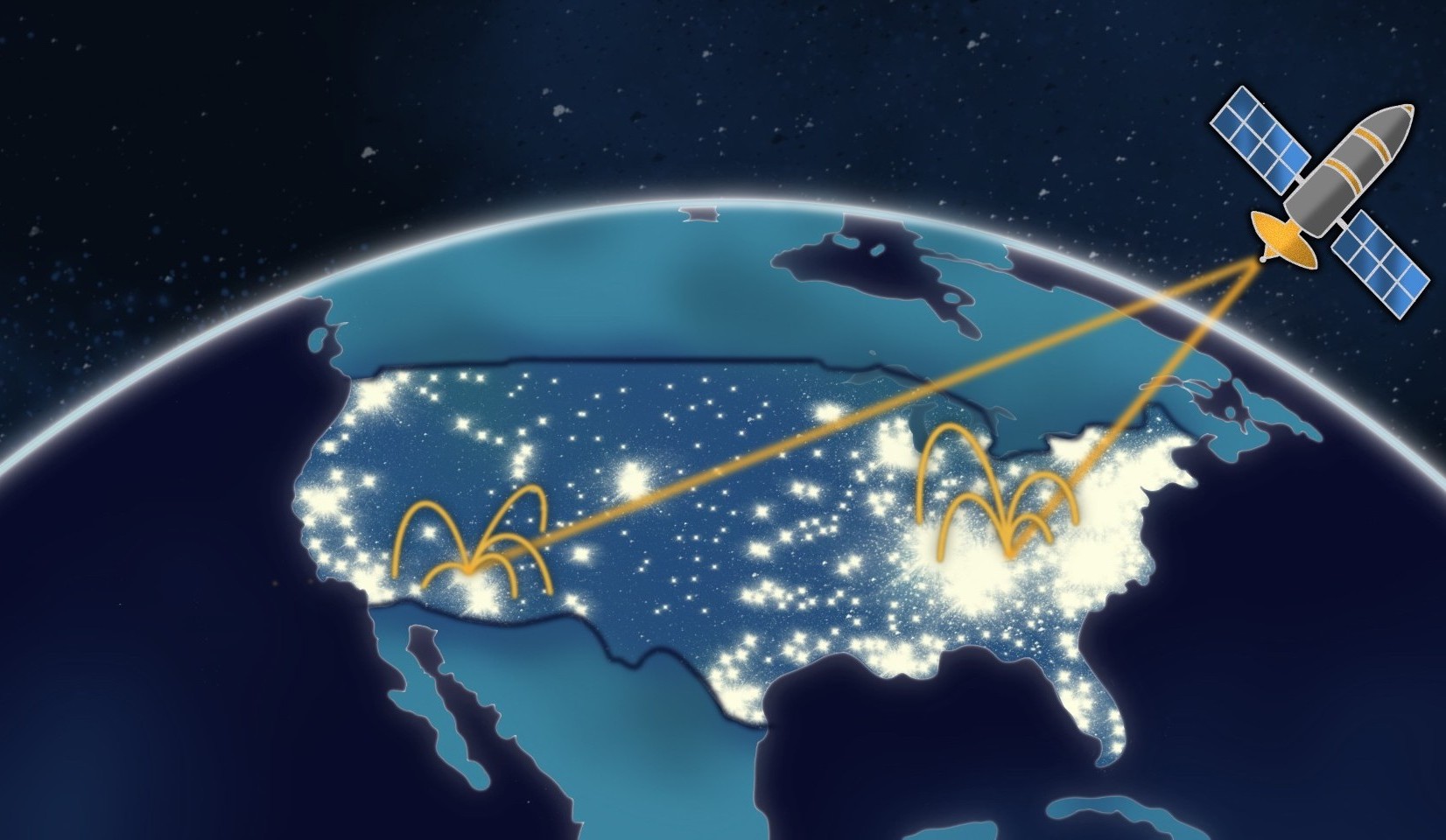 Quantum networks rely on entanglement to enable secure communication and distributed quantum computing, but current technologies face distance limitations. Optical fiber networks suffer from signal loss over long spans, while satellite-based systems are hindered by atmospheric attenuation and diffraction. In a recent study, we propose a hybrid architecture that combines satellite links and ground-based fiber optics to overcome these individual shortcomings. We show that the design can distribute high-fidelity entanglement over continental or even global distances—outperforming purely fiber- or satellite-based approaches, and serving as a step toward a scalable quantum internet.
Quantum networks rely on entanglement to enable secure communication and distributed quantum computing, but current technologies face distance limitations. Optical fiber networks suffer from signal loss over long spans, while satellite-based systems are hindered by atmospheric attenuation and diffraction. In a recent study, we propose a hybrid architecture that combines satellite links and ground-based fiber optics to overcome these individual shortcomings. We show that the design can distribute high-fidelity entanglement over continental or even global distances—outperforming purely fiber- or satellite-based approaches, and serving as a step toward a scalable quantum internet.
Demonstrating Converse Symmetry Breaking
Symmetry breaking—the phenomenon in which the symmetry of a system is not inherited by its stable states—underlies pattern formation, superconductivity, and numerous other effects. Theoretical work has established the possibility of converse symmetry breaking, a phenomenon in which the stable states are symmetric only when the system itself is not. This includes scenarios in which interacting entities are required to be non-identical in order to exhibit identical behavior, such as in reaching consensus. In our recent Nature Physics article, we present an experimental demonstration of this phenomenon using a network of electromechanical oscillators. An animated summary of the work is available here and you can view our cover on the issue here.
Recent Publications
D. Dahmen, et al.,
How Heterogeneity Shapes Dynamics and Computation in the Brain,
Neuron (2025).
doi:10.1016/j.neuron.2025.11.023
Y. Shao, J. L. Wyss, D. Towsley, and A. E. Motter,
Noncooperative Quantum Networks,
Physical Review Letters 135, 250804 (2025).
doi:10.1103/253d-s68r
arXiv:2512.15884
A.N. Montanari, A.E.D. Barioni, C. Duan, and A.E. Motter,
Optimal flock formation induced by agent heterogeneity,
Nature Communications 16, 9626 (2025).
doi:10.1038/s41467-025-64233-0
arXiv:2504.12297v1
A.E.D. Barioni, A.N. Montanari, and A.E. Motter,
Interpretable disorder-promoted synchronization and coherence in coupled laser networks,
Phys. Rev. Letters 135, 197401 (2025).
doi:10.1103/8qvk-hpwb
arXiv:2511.04749
Y. Shao, S. Guha, and A.E. Motter,
Hybrid satellite-fiber quantum network,
Phys. Rev. Applied 24, 024033 (2025).
doi:10.1103/s94j-s9n6
arXiv:2507.12539
C. Duan, and A.E. Motter,
Grid congestion stymies climate benefit from U.S. vehicle electrification,
Nature Communications 16, 7242 (2025).
doi:s41467-025-61976-8
arXiv:2509.01662
E. Bradley, A.E. Motter, and L.M. Pecora,
Introduction to focus issue: Topics in nonlinear science,
Chaos 35, 070402 (2025).
doi:10.1063/5.0281491
arXiv:2508.01801
B. Kuznets-Speck, B.K. Ogonor, T.P. Wytock, and A.E. Motter,
Generative prediction of causal gene sets responsible for complex traits,
Proc. Natl. Acad. Sci. USA 122(24), e2415071122 (2025).
doi:10.1073/pnas.2415071122
bioRxiv:2025.04.17.649405v1
J.L. Ocampo-Espindola, C. Bick, A.E. Motter, and I.Z. Kiss,
Frequency Synchronization Induced by Frequency Detuning,
Science Advances 11, eadu4114 (2025).
doi:10.1126/sciadv.adu4114
arXiv:2505.04714
Y. Wang, A.N. Montanari, and A.E. Motter,
Distributed Lyapunov Functions for Nonlinear Networks,
IEEE Control Systems Letters 9, 486 (2025).
doi:10.1109/LCSYS.2025.3573881
arXiv:2506.20728
A. Allibhoy, A.N. Montanari, F. Pasqualetti, and A.E. Motter,
Global Optimization Through Heterogeneous Oscillator Ising Machines,
IEEE Conference on Decision and Control, accepted (2025).
arXiv:2505.17027
Y. Shao, J.-R. Angilella, and A.E. Motter,
Emergent oscillations and chaos in non-compliant microfluidic networks,
Phys. Rev. Fluids 10, 054401 (2025).
doi:10.1103/PhysRevFluids.10.054401
arXiv:2505.00068
A.N. Montanari, C. Duan, and A.E. Motter,
Duality between controllability and observability for target control and estimation in networks,
IEEE Transactions on Automatic Control 70,5584 (2025).
doi:10.1109/TAC.2025.3552001
arXiv:2401.16372
A.N. Montanari, C. Duan, and A.E. Motter,
On the Popov-Belevitch-Hautus tests for functional observability and output controllability,
Automatica 174, 112122 (2025).
doi:10.1016/j.automatica.2025.112122
arXiv:2402.03245
Videos
Adilson E. Motter
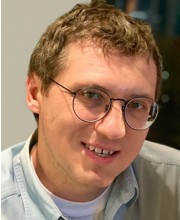
Professor Motter is the Director of the Center for Network Dynamics. His current research spans high-order networks, neurocomputation, machine learning applications, metamaterials, and quantum networks. More...
Twitter - Google Scholar - ORCID
YouTube Channel
Positions in Higher-Order Networks
The Motter group is currently recruiting postdoctoral researchers in higher-order networks and other areas of complex systems and networks.
“Janus Bunch” Complexity Explorable
Explore the wealth of dynamical states exhibited in a network of Janus oscillators.
Group News
November 2025: Thomas Wytock set to deliver 2026 Sievert Prize Lectures “Physics of Life: From Molecules to Minds.”
November 2025: Adilson E. Motter is elected Corresponding Member of the Brazilian Academy of Sciences.
September 2025: Adilson E. Motter receives the Karl Rosengren Faculty Mentoring Award.
September 2025: Jimmy Wang receives the Fletcher URG Prize, an award for the most outstanding 2025 Summer URG project in Natural Sciences and Engineering.
August 2025: We are excited to announce the 2025 CDC Workshop on Neurocomputation and Dynamics, to be held on December 9 in Rio de Janeiro. To register or apply for a contributed talk, please visit the workshop webpage!
June 2025: Nicole Hampton recognized among 2024-25 Physics and Astronomy Scholars.
May 2025: Nicole Hampton, Anna Tkebuchava, and Jimmy Zhang awarded summer research grants.
June 2024: Ana E. D. Barioni and Arthur N. Montanari receive Honorable Mention in NetSci 2024 Educational Video Competition.
May 2024: The Center for Network Dynamics hosts the “Brain Architecture and Computing 2024” workshop.
September 2023: Northwestern launches the Center for Network Dynamics, directed by Prof. Adilson Motter.
Selected Press
Too much entanglement? Quantum networks can suffer from 'selfish routing,' study shows
Phys.org (January 21, 2026)
http://...
Clean energy is here. Getting it to EVs isn’t
Northwestern Now (August 6, 2025)
http://...
Hybrid quantum network protocol enables high-fidelity global entanglement distribution
Quantum Zeitgeist (July 18, 2025)
http://...
AI identifies key gene sets that cause complex disease
Northwestern Now (June 9, 2025)
http://...
Bacterial cells transmit memories to offspring
Northwestern Now (August 28, 2024)
http://...
From a Point to a Torus: Unveiling Emergent Dynamics with Higher-order Bifurcations
SIAM News (July 5, 2024)
http://...
How do billions of cicadas emerge at the exact same time? Experts explain
NBC Chicago (May 17, 2024)
http://...
Transfer learning paves the way for new disease treatments
Northwestern Now (March 4, 2024)
http://...


